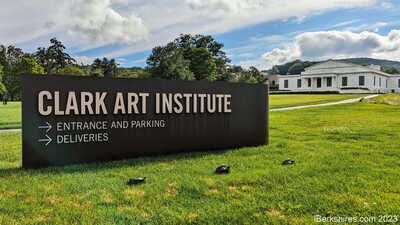Clark Art Lecture Examining Race and Idealized Image of the Wilderness
WILLIAMSTOWN, Mass. — On Tuesday, April 23 at 5:30 pm, the Clark Art Institute's Research and Academic Program presents a lecture by writer Daegan Miller examining the complex history of race and the idealized image of the wilderness of the nineteenth-century Adirondacks.
The talk takes place in the Clark's auditorium, located in the Manton Research Center.
According to the press release:
The wilderness often conjures images of vast, untouched-by-human expanses of forest––an idealized image of how nature should be. Yet humans have always lived in the woods, and this idealized image of nature erases its complex history. This talk returns to the nineteenth-century Adirondacks, where Black settlers established an anti-racist, socialist community in the years before the Civil War, and to works by Thomas Cole. Miller argues that the era establishes a nuanced, social vision of the wilderness that helps us rethink our twentieth-century place in the world.
Daegan Miller is an essayist and critic whose writing investigates what it means to inhabit a landscape. He is the author of "This Radical Land: A Natural History of American Dissent" and received his PhD in cultural and environmental history from Cornell University. His essays and criticism have appeared in a wide range of venues, including The Yale Review, Emergence, Places Journal, Guernica, Slate, and the North American Review. He lives with his family in the hilltowns of Western Massachusetts.
Free. Accessible seats available; for information, call 413 458 0524. A reception at 5 pm in the Manton Research Center reading room precedes the event.
Tags: Clark Art,

